How to select the best Foods
That Relieve Constipation
The best foods that relieve constipation are not difficult to find and, more importantly, they're delicious
and a pleasure to eat. If your diet is to blame for the presence of constipation, does it not stands to
reason that the best way to prevent the problem is to alter your diet?
intriguing research on Constipation
We owe much of our understanding on the importance of diet on the digestive system to Dr. Denis P. Burkitt, an Irish researcher who studied bowel habits of Africans living in small towns and large cities.
He found that people who ate indigenous, local foods had an average, dare I mention it, of a pound (half a kilo) of feces each day; with twelve hours transit time - If you want to know what transit time is click on the link.
Burkitt found that those who lived in cities on Western diets only excreted 5 1/2 oz. (150 g.) of stool each day, with average transit time of 48 to 72 hours.
The interesting point was that people on native diets, which included plenty of foods that relieve constipation, had extremely low incidences of diseases common to Western civilization, such as appendicitis, diabetes, diverticulitis, gallstones, coronary heart disease, hiatus hernia, varicose veins, hemorroids, colon cancer and obesity. When people moved into cities and ate a Westernized diet, guess what ... they too developed these diseases.
In lectures in New York City and elsewhere, Dr. Burkitt criticized the modern habit of eating carbohydrate sugars and starches in refined form, stripped of their bulky, chewy coverings. And he pointed to dangers of eating white flour.
Dr. Burkitt attributed much of this disease to poor dietary fiber intake in a modernized diet. (1)
So the perfect formula for constipation is to eat lots of meat, dairy and fatty foods and there's millions of people to prove it. Only in the United States more than four millions Americans suffer with chronic constipation!
You'll agree that cheeseburgers and fries, ribs and
chicken, and greasy pizza offer little or no fiber and are not the best
foods for constipation. So...what's the alternative? And will I like it?
How does this help you select the best foods
that relieve
constipation?
This is one established truth:
For most people, a diet high in fiber and fluids can solve the problem and is sufficient to relieve and prevent constipation.
All fruits, vegetables, legumes and whole-grain foods contain healthful amounts of fiber and can all be considered excellent foods that relieve constipation.
Have a look at the picture below. How many of these foods do you regularly eat?
3 ways in which high-fiber foods work
as a natural laxative
1 - High-fiber foods such as bran and vegetables add bulk, mostly by absorbing and retaining water, producing softer stools that pass through the colon more quickly and gently.
The fiber (both soluble and insoluble) bulks up the stool because most of it is undigested. Unlike small stools that can accumulate for days before moving on, large stools are moved out of the intestine much more quickly and, as they're much softer than smaller ones, there's less straining when they do move.
2 - Fiber's coarse particles also mechanically activate nerve reflexes in the colon wall, triggering bowel movements.
3 - Other foods such as coffee and prunes can chemically stimulate the bowel into action.
If you have chronic constipation try eating five fruits and five vegetables every day and three to five servings of whole grains - but start gradually.
If you're not used to eating many of these foods that relieve constipation, you might experience cramping
and
gas to start with. Begin slowly by adding more fiber to your constipation diet over
the course of several weeks or months.
For a complete guide on how to include fiber in your diet go to High-Fiber Foods page
Also read about the Best Fiber Supplement
Don't Forget Water
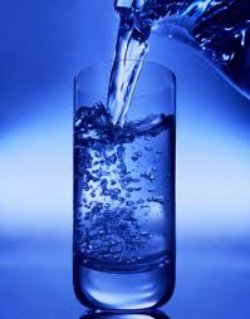
Water must have an important place amongst the foods that relieve constipation. We often think of water as an add-on to a healthful diet, not an essential ingredient in its own right.
But not getting enough water is a very common cause of constipation.
After all, stools can absorb large amounts of water. When they don't get enough, they get hard, sluggish and more difficult to pass.
After all, have you ever tried to chew and swallow a very dry food? I bet you found it very difficult. And
what do you tend to do? You reach for a glass of water to help you swallow. Well, our intestine is no
different, it needs water to move things along.
This is even more important when you're eating more fiber; you need to increase the amount of water you drink to keep things moving smoothly.
You might say, I drink whenever I'm thirsty. Isn't that enough?
Apparently not. It seems that you can't depend on thirst to tell you when it's time to drink, says Dr. Marie Borum, M.D., MPH, professor of medicine at George Washington University Medical Center.
The thirst mechanism isn't all that sensitive to begin with, and often it stays silent even when your body needs more fluids. What's more, the urge to drink naturally gets weaker with age, which is one more reason why constipation is more common in older people.
The best way to avoid the problem is to drink 6 to 8 glasses of water a day. If you don't want to drink that much water, make up the difference by having soups, herbal teas and natural fruit juices diluted with water.
Beverages
containing alcohol or caffeine, however shouldn't count toward your
daily fluid intake because they're diuretics, meaning that they actually
remove more fluids from your body than you put in, according to Dr.
Borum. (2)
Several studies have proven the link between not drinking enough water and constipation.
Scientists in Germany, for example, gave eight men 2,500 ml. (85 oz.) of water each day for 1 week and then 500 ml. (16 oz.) of water each day for another week.
The researchers found that even this relative short period of fluid deprivation decreased stool frequency and weight.
In another study carried out in Italy, researchers divided 117 people with chronic constipation in two groups. For 2 months, both groups ate a standard diet with about 25 g. of fiber per day.
The first group was allowed to drink as much water as they wanted (which turned out to be not too much), but the second group drank 2 litres (about 2 quarts) of mineral water each day.
The researchers found that the 25 g. of fiber each day relieved the people's constipation, but their constipation was relieved even more when they drank 1.5 to 2 litres of water a day.
So fiber is good and water is good, but both together are much better and should be included amongst the foods that relieve constipation!
The 9 most important steps you can take
to
Relieve Constipation
- Bran, both wheat and rice bran are the best at restoring bowel movements.
- Whole wheat bread and grains that haven't had their bran and germ removed by milling are a great source of fiber.
- Water - increasing the fiber in your diet without increasing the amount of water you drink can cause even more constipation. Six to eight glasses of water are usually enough to prevent hard stools.
- Legumes, peas, beans and nuts - they're full of fiber plus they contain magnesium, which is a superb laxative.
- Flaxseed and Psyllium - both help to bulk up stools.
- Prunes, dried fruits and berries.
- Root vegetables, including potatoes and carrots.
- Leafy vegetables such as spinach.
- Apples, oranges and other fruits.
But you can be even more effective if you chose specific foods to add to your diet for constipation.
11 specific foods to relieve constipation
If you want more than just a list click on the links and you'll find a more detailed explanation on each of
these foods that relieve
constipation:
Constipation Related Articles:
What Everybody Ought to Know About the Causes of
Constipation
The 6 Most Common Symptoms of
Constipation - Also explaining what bowel transit time is and how to test it
How to Select the Best Foods That Relieve Constipation - Discussing the importance of fiber and water in the diet
The Best High Fiber Diet Plan That Can Help You Relieve Constipation - Explaining how fiber works to keep you regular
5 Best Foods for Constipation That Work (Part 1) - Discussing apples, beans, berries, flaxseed and dried fruits
The 6 Best Foods for Constipation That You Need to Know About (Part 2) - Discussing dark leafy greens, ginger, honey, rhubarb, squash and coffee
Prune Juice for Constipation and Other Health Benefits
Other Related Articles:
Benefits of Fiber and High Fiber Foods in Your Diet - Increasing fiber in your diet can help preventing and treating many conditions
Best Fiber Supplement - Why is Lepicol the best fiber supplement?
References
1) Don't Forget Fibre in Your Diet by Denis Burkitt. London: Martin Dunitz Ltd. 1979. ISBN 0-906348-07-22) The Doctors Book of Food Remedies: The Latest Findings on the Power of Food to Treat and Prevent Health Problems--From Aging and Diabetes to Ulcers and Yeast Infections- 24 Jun 2007 by Selene Yeager ISBN-1594866635
Search for information on this site:
Receive Discover the Power of Healing Foods! Free
Newsletter
RELATED PAGES:
What Everybody Ought to Know About The
Causes of Constipation
The 6 Most Common Symptoms of Constipation
How to Select the Best Foods That Relieve Constipation
5 Best
Foods for Constipation That Work
(Part 1) - Discussing Apples, Beans, Berries, Flaxseed and Dried Fruits
The
6
Best Foods for Constipation That You Need to Know About
(Part 2) - Discussing Dark Leafy Greens, Ginger, Honey, Rhubarb, Squash and Coffee
Benefit of
Fiber and High Fiber Foods in Your Diet
Lepicol - Best Fiber Supplement
Most Popular
Pages:
The Best "Fish Oil" Supplement is Not Made from Fish
Bananas for High Blood
Pressure
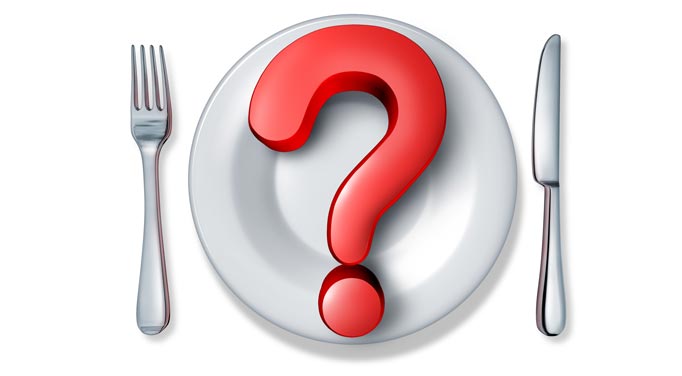
Elimination Diet for IBS and Other Food
Sensitivities

Healing Foods for Heart
Disease

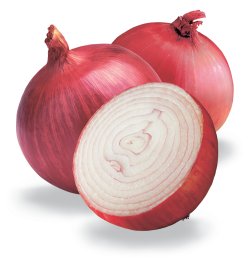
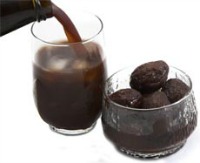

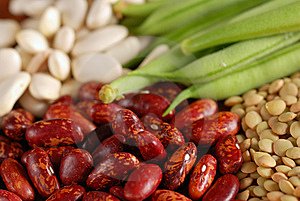
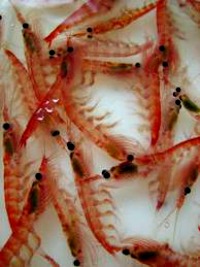
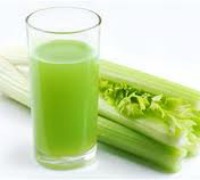

New! Comments
Have your say about what you just read! Leave me a comment in the box below.